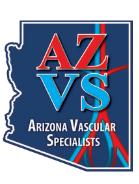
Dr. Layla Lucas,
MD, FACS, RPVI, FSVS
Dr. Layla Corral Lucas is an Arizona native, born and raised in Scottsdale. She received her undergraduate and graduate degrees at the University of Arizona. She continued her training at the U of A and became double board-certified in general and vascular surgery and is now a Fellow of the American College of Surgeons (FACS). She is also a Fellow of the Society for Vascular Surgery (FSVS) contributing to vascular research, service, and education, and a Registered Physician in Vascular Interpretation (RPVI).
Dr. Lucas’s vascular fellowship provided a particular emphasis on amputation prevention through her work with the Southern Arizona Limb Salvage Alliance (SALSA) and she was a former president of the Rocky Mountain Vascular Society. She has a special interest in wound healing, limb salvage, stroke prevention, and treatment of aneurysmal disease.
In her free time, she enjoys family time, traveling near and afar, cooking new recipes, and rescuing dogs.
- Dr. Lucas provides several treatments for the following:
- Abdominal and thoracic aortic aneurysms (AAA) – Open and Graft
- Peripheral Arterial Disease (PAD)
- Varicose Veins
- Wound Care
- Diabetic Foot Ulcers
- Carotid Artery Disease (CAD)
- Dialysis Access
- Central Venous Access
- Anticoagulation Management
- Hospitals Affiliations:
Tucson Medical Center
Carondelet Health Network – St. Joseph’s Hospital
Arizona Vascular Specialists – Office Based Lab
Speedway Surgical Specialists – Ambulatory Surgery Center
Vascular Surgery Procedures and Interventions
Dr. Lucas has been trained in a wide variety of updated minimally invasive endovascular techniques as well as traditional open vascular surgery comprehending a diversity of vascular diseases.
- Abdominal and thoracic aortic aneurysms
- Peripheral arterial disease (PAD)
- Varicose veins
- Wound healing
- Hyperbaric oxygen medicine
- Diabetic foot ulcers
- Dialysis access
- Carotid artery disease
- Mesenteric and renal artery disease
- Central venous access

